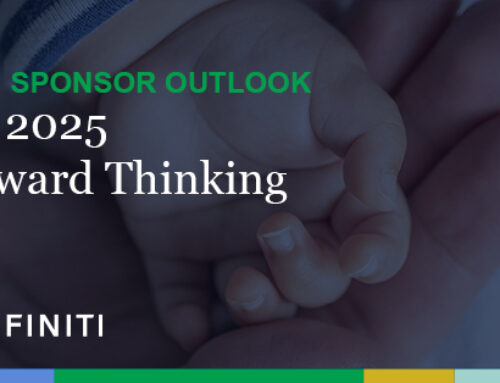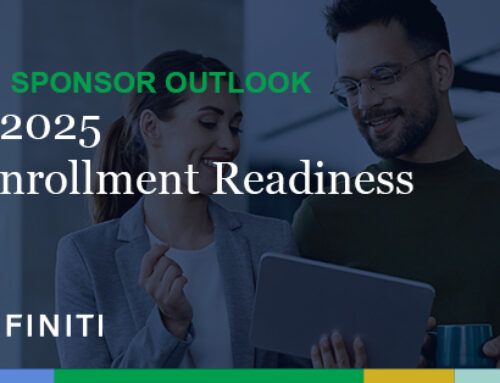As retirement approaches, employees increasingly rely on their employers for comprehensive and attractive retirement benefits. But what do retirement plan participants want from their 401(k) and other retirement plans? What features, services and support do they value the most?
Surveys by leading retirement plan recordkeepers shed light on these questions, providing insights for employers and financial advisors.
Recordkeepers serve as the backbone of participant-level services, managing critical aspects of employer-offered retirement plans. Their proximity to plan participants offers unique insight into employee preferences.
By examining recent survey results, we can better understand evolving plan participant preferences. From customizable investments to personalized financial education, the surveys uncover essential elements for designing or revamping retirement plans to meet employees’ needs.
Generational Preferences for Retirement Benefits
Today, a diverse mix of generations is in the workforce, with Baby Boomers and Gen Xers nearing retirement and tech-savvy Millennials and Gen Z entering it. Each group has unique perspectives and preferences.
Recordkeeper Empower’s Meeting the Retirement Needs of Gen Z white paper sheds light on the beliefs and preferences of people born between 1996 and 2012, revealing lower savings rates and less engagement in retirement planning. Empower emphasizes the importance of understanding Gen Zers diverse backgrounds and characteristics.
Empower’s research revealed that this population, new in their careers and entering their companies’ retirement plans, have lower savings rates than older generations. They often fail to take full advantage of employer-matching contributions, are less engaged in retirement planning and are more likely to switch jobs.
The paper emphasizes the importance of understanding Gen Z’s characteristics. They are a diverse generation, and their racial and ethnic backgrounds shouldn’t be assumed when communicating with them. Gen Z is also self-reliant, collaborative, digitally proficient, guarded about social media, entrepreneurial and pragmatic. They value safety and security, approach consumption in terms of access rather than possession, and question the cost of higher education.
Empower recommends employers:
- Build trust with Gen Z through in-person meetings and encourage collaboration and engagement.
- Help Gen Z employees with student loan debt through provisions under the Secure 2.0 Act of 2022.
- Make them aware of workplace opportunities to engage in financial planning.
- Educate and engage Gen Z savers to improve their retirement readiness.
- Target this group with personalized communication and leverage their preference for advice from financial professionals.
- Communicate authentically and promote dialogue rather than lecturing.
- Hold in-person meetings across age groups to foster understanding.
- Understand and meet the specific needs of Gen Z in retirement planning.
- Take a personalized approach and engage them early in their careers.
Key Findings from Two Other Participant Surveys
Recordkeeper John Hancock Retirement Plan Services’ ninth annual Stress, Finances and Well-being survey highlights three key financial concerns among participants — retirement savings, credit card debt and emergency savings. Its findings underscore the significance of providing financial wellness resources and suggest actions to support employees.
John Hancock’s research reported that 19% of workers recently dipped into their savings to pay for daily life expenses, and a third are concerned they don’t have enough money to cover sudden and unexpected expenses. When asked what support survey respondents needed to help them better prepare for retirement, 91% of people said learning more about sources of retirement income was the top priority.
John Hancock recommends employers consider the following action steps:
- Host debt management workshops that provide strategies for helping workers balance their current needs with paying down debt.
- Expand benefits offering to include options that help participants build emergency savings.
- Offer a financial wellness program if you don’t have one already.
- Check with retirement plan partners, as many have ready-to-go presentations and other financial wellness tools to help employees.
Recordkeeper T. Rowe Price’s Participant Reactions and Trends report covers a wide range of topics, from national consumer spending statistics to investment choices and savings rates.
When T. Rowe Price asked survey participants to complete a financial wellness assessment, it found that 70% of participants said they hadn’t saved six months’ worth of expenses for an emergency, and 46% said they had less than $1,000 in savings. When asked for their reasons for having minimal savings, survey respondents cited mortgages, credit card bills and car payments obligations.
T. Rowe Price suggests retirement plan sponsors consider these potential solutions to the survey findings:
- Foundational financial wellness education
- Assistance with student loan repayments
- In-plan or out-of-plan emergency savings solutions
- Plan design features for retirees:
- Advice and guidance
- Income-generating investment solutions
- Installments
- Communications focused on catch-up contributions
- Provisions that:
- Increase savings or coverage (e.g., participation incentives and student loan match)
- Allow plan sponsors to meet participant needs (e.g., disaster distributions)
- Are intended to reduce operational complexity (e.g., self-certification for hardship distributions)
What Do Your Employees Think of the Retirement Plan?
While national plan participant surveys provide valuable insights into the preferences of thousands, asking your employees for feedback reveals more meaningful information. Understanding what your employees want from their 401(k)s and other company retirement plans is crucial for creating effective and engaging retirement solutions.
To gain deeper insights into your employees’ perspectives on their retirement benefit, survey both participants and non-participants, asking about their retirement needs, preferences and concerns.
Questions you could ask employees include:
- What motivated you to enroll in the 401(k) if you’re participating?
- If you’re not in the 401(k), what are the main reasons for not doing so?
- What support and education do you need to make informed retirement plan decisions?
- What additional retirement benefit offerings or services would be beneficial?
- What are your greatest fears or concerns about having enough money in retirement?
- Are you confident your current retirement plan will adequately support your desired retirement lifestyle?
- What specific aspects of the retirement plan are unclear or confusing?
- How comfortable are you with managing and adjusting your plan investments as retirement approaches?
- What online and in-person educational resources or workshops would you like to see offered?
- How knowledgeable are you about the tax implications of the various withdrawal options available from the retirement plan?
- Are there specific aspects of the company retirement plan you would like to know more about?
- How likely are you to recommend our retirement plan to a coworker?
Your financial advisor and plan recordkeeper will be interested in your employee outreach efforts and may offer input on populations to query, survey questions, communication strategies and survey timing.
We’re Here to Help
Definiti, as a trusted partner, can work with any recordkeeping platform to help you implement new features or services in your retirement plan benefit. Should you have any questions or concerns about incorporating these enhancements, we recommend contacting your financial advisor first. They can offer valuable guidance and ensure that any changes align with your overall strategy for your retirement plan.
If Definiti isn’t your third-party administrator, let’s start the conversation. Call us at 1-888-912-3653 or email sales@definiti.com. Our dedicated team is committed to helping retirement plan sponsors provide optimal retirement plan benefits that align with both their company’s requirements and employees’ well-being.



